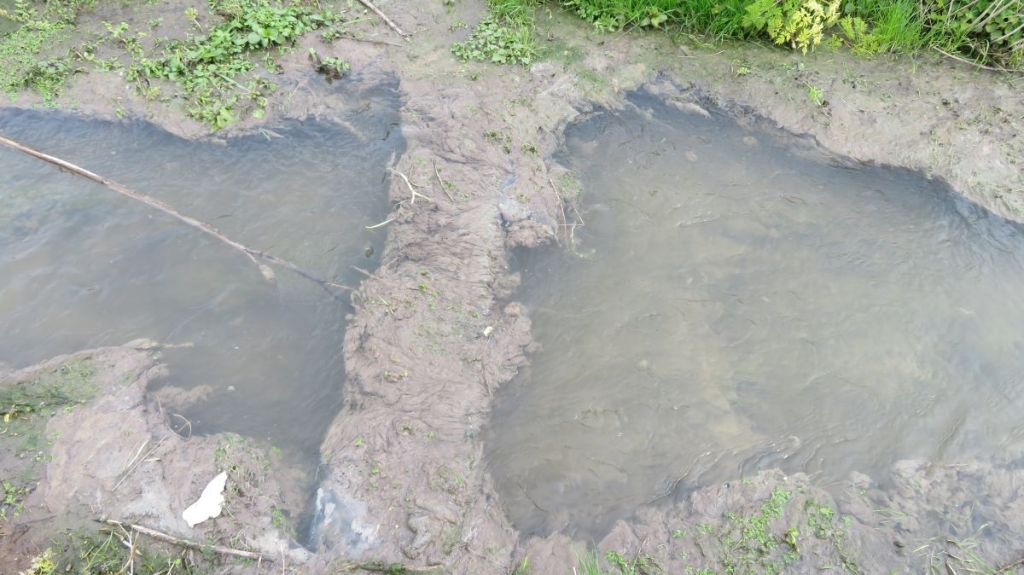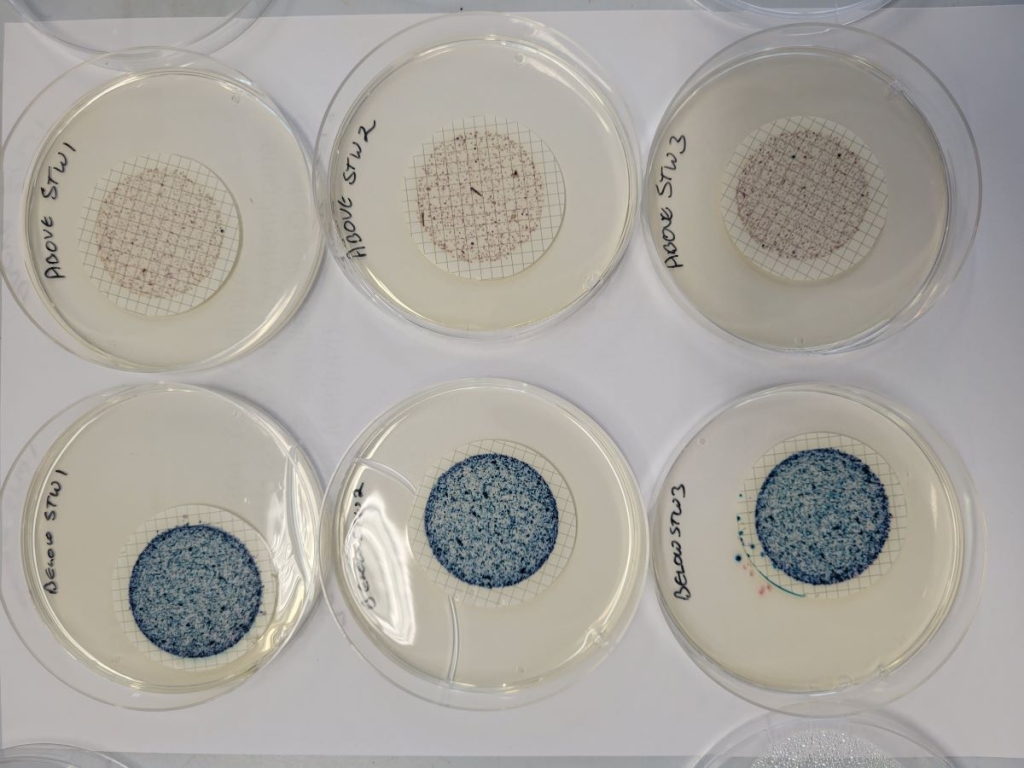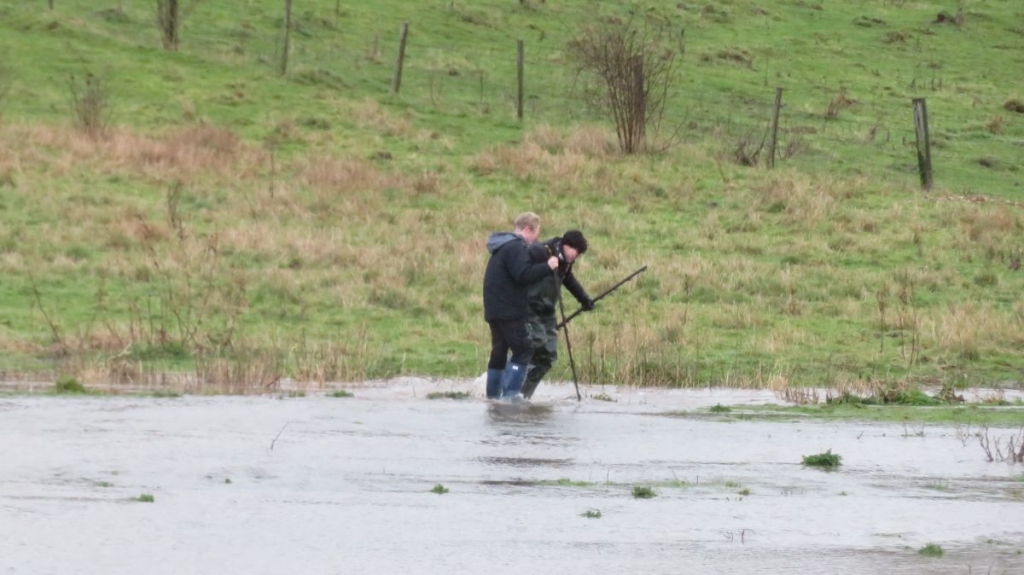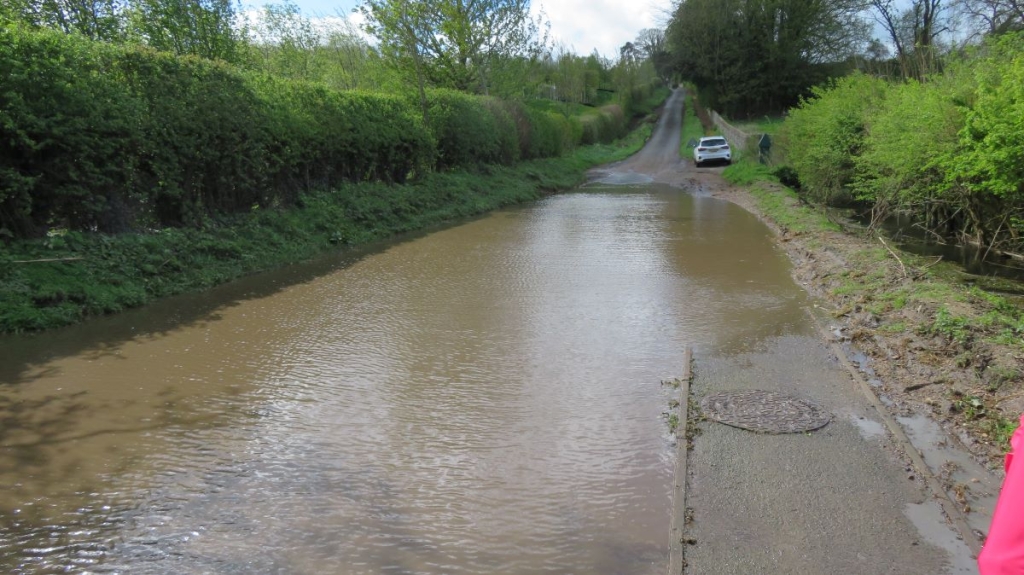E. coli levels in the River Ver six times bathing standard
The River Ver joins the list of chalk streams in England where E. coli levels were recorded as six times higher than the accepted standard for bathing. Sewage discharges directly into the river in 2024 have been nearly non-stop from mid-March to mid-June and have now passed the 2,400 hour mark.
Water samples taken in May by the Ver Valley Society’s volunteers, and tested by Brunel University London, a joint collaboration with the Centre for Pollution Research and Policy and the Antimicrobial Innovations Centre, showed ~3,000 E .coli colonies per 100 mL of water downstream of Markyate Sewage Treatment Works (STW). This is six time the accepted threshold of ≤500 colonies. What’s more, samples from the River Ver above the works, show just ~3 E. coli colonies per 100 mL of water, better reflecting the pristine waters of a ‘priority habitat’ chalk stream.
It’s concerning that such high levels were detected and yet no warning appears to have been given to those directly downstream of the sewage discharge. E. coli can be caught from contaminated water yet we discovered locals unsuspectingly wading in the polluted river when the spill was in full flow. A local road in Flamstead, River Hill, was flooded with contaminated water and car owners were driving through it, in some cases spraying water over neighbouring hedges.
The river at Markyate represents the headwaters of the River Ver and should support excellent chalk stream habitat. Our observations have shown bank-to-bank sewage fungus, with very few in-stream or marginal plants. Citizen science testing has recorded high nitrate and phosphate levels too. Several miles downstream, copious amounts of filamentous algae have been recorded. Unfortunately, the algae thrive on high levels of nutrients, reduce oxygen in the water and smother the beneficial chalk stream plants.


We understand that the Environment Agency is conducting an investigation in the area but we are not yet aware of any findings. Thames Water has a Groundwater Impacted System Management Plan for Markyate STW but is not expecting to undertake it this year.

